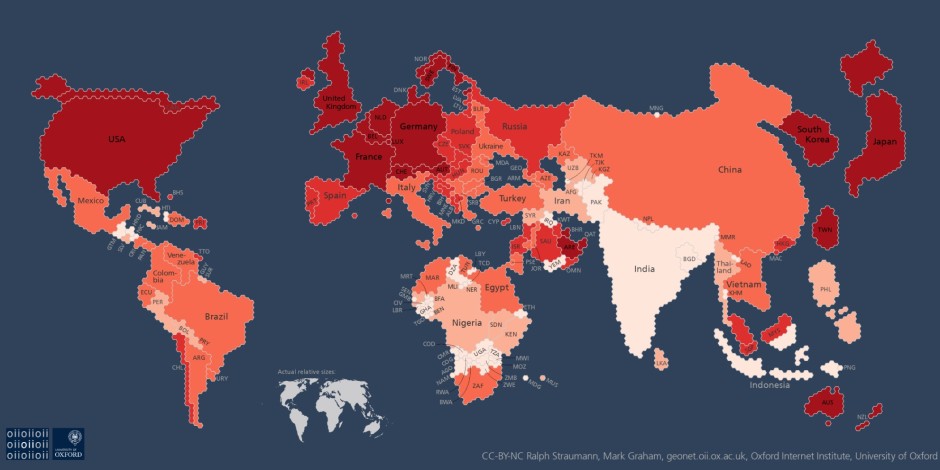Is the link saved yet?
A little over a week ago we saw the final vote on a report on copyright that has been winding through European Parliament for the last 6 months. So, what was the outcome? Well, the final decision mirrored what Internet users have been telling us throughout our work on the Save the Link project: we have a right to link, and any regulations that restrict this right will be met with fierce opposition.
A little over a week ago we saw the final vote on a report on copyright that has been winding through European Parliament for the last 6 months. So, what was the outcome?
Well, the final decision mirrored what Internet users have been telling us throughout our work on the Save the Link project: we have a right to link, and any regulations that restrict this right will be met with fierce opposition.
Our big win
Specifically, Members of European Parliament (MEPs) rejected a proposal in favour of a ‘link tax’ similar to existing laws already on the books in both Germany and Spain. The proposal would have allowed for publishers to charge a fee for using snippets of text to link to content on their sites, monetizing links, and asking aggregators like Google News and reddit to pay to point to content freely available on their websites.
MEPs pushing this plan forward–including Legal Affairs committee co-chair Jean-Marie Cavada–had hoped to insert a terrible amendment supporting the ‘link tax’ during the first round of voting.
Fortunately, you were there to tell them what a terrible idea that is for the Internet. Undeterred, anti-Internet forces (mainly from the far-right EPP party in Parliament) raised the amendment from the dead, and tried once again during the final vote to impose this backwards censorship plan on you, me, and everyone else online.
The plan’s failure could not have come as a surprise to proponents, as the implementation of this law elsewhere has been so disastrous, that, for example, most German companies chose to waive the fee in favour of being linked out to. In Spain, where waiving the fee was prohibited in the legislation, Google News shut down operations, and traffic to Spanish news sites plummeted.
Clearly, the link tax isn’t good policy for the Internet. Not good for users, not good for innovation (check out this amazing blog from a supporter who tried to open a boutique aggregation service in Spain, and had his business ruined by the Spanish ‘link tax’ law), and not good for the interconnected information space that is the World Wide Web.
So when moves were made to introduce this regime Europe-wide, it should have been a no-brainer: the law does much more harm than good, and goes a long way to move us towards an Internet where links are copyrightable, harming our access to information and free expression online.
But it was only after hearing from tens of thousands of Internet users like you (here’s just a taste) that Parliament was persuaded to reject this broken proposal.
Where we go from here
This conversation really began way back in 2013, when European Commission kicked off a round of public consultation on copyright, seeking input on how to update rules that govern all of our online actions, and have a huge impact on the way that Internet users share and collaborate using the World Wide Web.
This consultation saw unprecedented numbers of comments submitted, with over 11,000 messages sent, the vast majority of which came from Internet users. From this consultation spawned the appointment of rapporteur Julia Reda to prepare and advance a report on how to best update copyright rules so that they make sense in today’s digital context.
The report has now passed through Parliament, and we were able to stop bad proposals like these ones from appearing in the final text. But our fight is far from over. Now the responsibility for drafting the actual legislation that will update the 2001 Copyright Directive belongs to the European Commission. This body will hopefully take the strong message sent to them by Internet users: give us copyright rules that facilitate online sharing and collaboration.
But, we know that between us and our end goal there will be more bad proposals, and it will be up to us to raise a red flag when they appear. Taking a moment to appreciate how far we’ve come, we can see the Reda report as a line in the sand from Internet users, and the huge level of engagement with this process demonstrates that people care about copyright reform and will take action to protect their right to link.
Check out our new video on this topic:
Meanwhile, threats to free expression buried in the secretive Trans-Pacific Partnership (TPP) demand our attention. TPP negotiators will be meeting in Hawaii in the final week of the month, and with reports indicating that this could be the last round before a framework agreement is reached, now is the moment to tell your representatives just how bad of an idea this is. Use our tool to send a message to your Trade Minister today, and we’ll make sure to keep you in the loop about how you can act to protect your free expression online.
Use our tool to send a message to your Trade Minister today, and we’ll make sure to keep you in the loop about how you can act to protect your free expression online.




 Take action now!
Take action now!
 Sign up to be in the loop
Sign up to be in the loop
 Donate to support our work
Donate to support our work